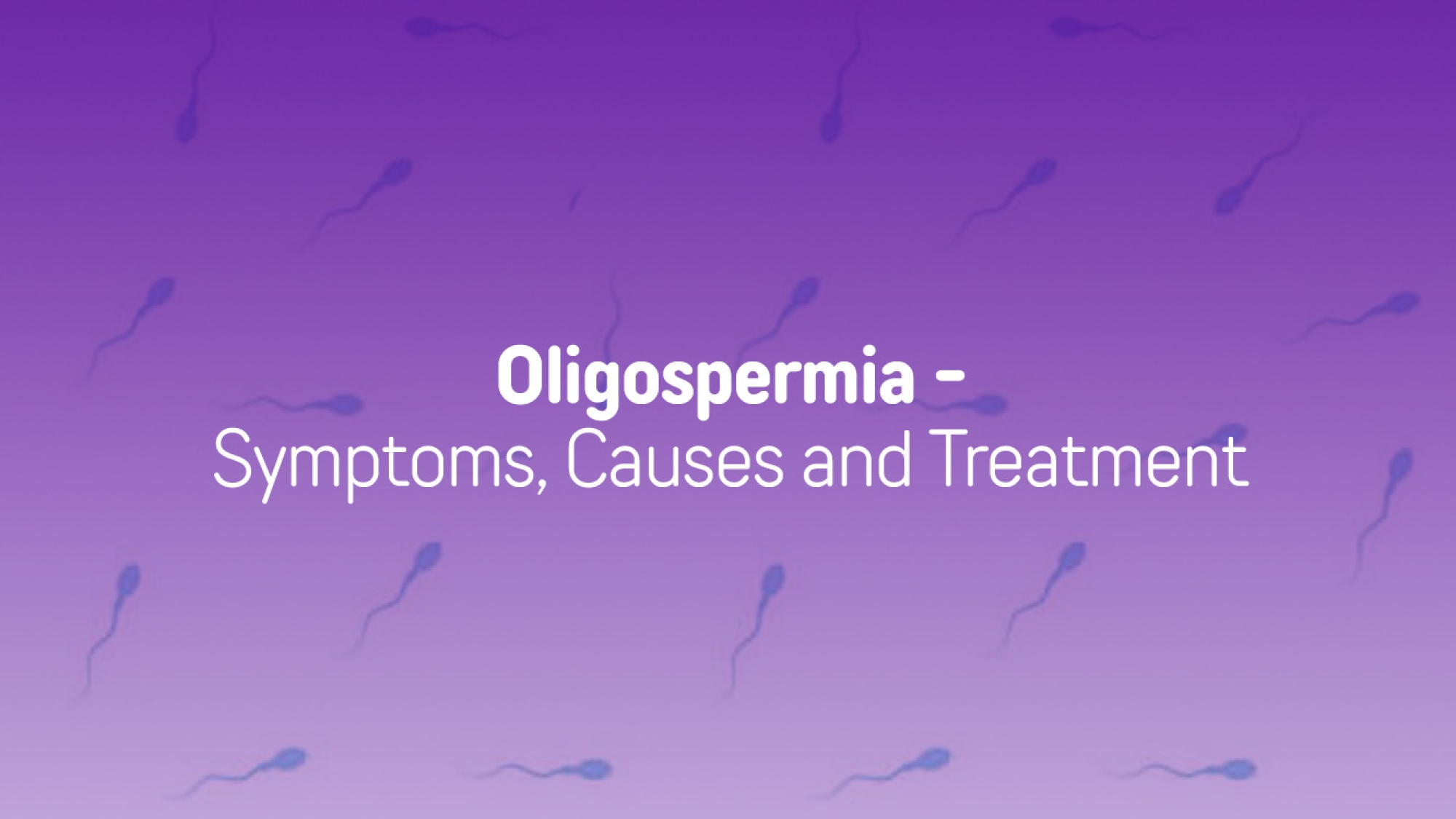What is Oligospermia (Low Sperm Count)?
If a man’s sperm count is below 15 million sperm cells per semen millilitre, it is considered a low sperm count. Low sperm count also refers to oligospermia. On the other hand, when there is a complete absence of sperm, it is known as azoospermia. When the sperm count is sharply low, fewer than 5 million sperm in 1 semen millimetre, you can identify it as severe oligospermia.
What are the Signs and Symptoms of Oligospermia?
You may or may not see any oligospermia symptoms in your body until you and your partner try getting pregnant. This is because infertility is the tell-tale sign of oligospermia. However, that does not mean there are no other symptoms of oligospermia.
Symptoms of Oligospermia:
- Difficulty in getting pregnant is mostly the only symptom. Other symptoms can be:
- Difficulty keeping an erection
- Low sex drive
- Deduction in hair and face on the body
- Signs of chromosome hormonal abnormality
- Lump, swelling or pain in the region around testicles
Oligospermia – Causes
Medical Causes for Oligospermia:
- Infections can affect sperm production and sperm health and lead to scarring that stops the sperm from passing. Mumps can damage testicles and hinder sperm production.
- STDs such as gonorrhoea or HIV can cause inflammation of testicles.
- Enlargement of veins that weaken the testis can be a reason behind male infertility.
- Some diseases like Klinefelter’s syndrome, cystic fibrosis, Kallmann’s syndrome, and Kartagener’s syndrome can make reproductive organs develop unusually and are linked to infertility.
- Benign tumours, cancer or hormone-releasing glands associated with reproductive organs impact male reproductive organs. Surgery, radiation or chemotherapy can also harm male fertility.
- In males, one or both testicles may fail to fall from the abdomen into the sac that normally holds the testicles during foetal development. Men who have undescended testicles are more likely to be infertile.
- Variations in hormones produced in testicles, pituitary, brain and thyroid and adrenal gland can reduce sperm production.
Environmental Causes for Oligospermia:
- Many studies suggest that repetitive usage of hot tubs can impede sperm production. Overheated testicles can be a cause of low sperm count.
- Exposure to X-ray radiations or through other sources can lead to impairment of sperm production.
- Other possible environmental causes include occupational exposure to herbicides, pesticides, solvents, and other industrial chemicals or heavy metals.
Lifestyle Causes for Oligospermia:
- Drugs like marijuana, anabolic steroids and opioids can decrease sperm production.
- Drinking alcohol can decrease testosterone levels and lower sperm production.
- Smokers have a lower sperm count than non-smokers.
- Pre-workout supplements, vitamins and testosterone boosters can damage sperm production.
- Jobs where you need to sit for a long period can lower your sperm count.
- Obesity or being overweight can impact your hormones and sperm production.
- Severe or protracted emotional stress, such as fertility anxiety, may interfere with the hormones needed for sperm production.
Oligospermia and Fertility:
- Men with low sperm count may conceive even with lower sperm counts. However, fertilization can be difficult and more attempts may be required compared to couples without fertility issues.
- Some men with oligospermia may have no issues with fertility, no matter if the sperm count is low.
- Oligospermia also raises the risk of other fertility issues in men, including problems of sperm motility.
- Sperm motility is the amount of active sperm in a man’s sperm. The normal activity enables sperm to swim to an egg for fertilization.
- Sperm with abnormal motility may not move fast enough to reach an egg. Sperm may also move in an unexpected pattern, finding it impossible to reach an egg.
Oligospermia – Treatment and Home Remedies
Some medical treatments and home remedies may help you improve your sperm count. Let’s have a look at some medical treatments first.
Medical Treatments for Oligospermia:
- For varicoceles, you can get surgery, and the doctor will seal the enlarged veins.
- Antibiotics and other medications are used to treat infections and inflammation.
- Treatment may not increase sperm counts, but it may prevent larger drops.
- Maintaining a healthy weight can improve sperm count and reduce the risk of other health conditions.
- Not consuming drugs, tobacco and alcohol can enhance the sperm count.
- If you or your partner cannot get pregnant after having unsafe sex for a year, you can take medical assistance from Dr Manish Banker, the best fertility specialist in Ahmedabad. AtBanker IVF, the team of experts will provide you with the best treatment to start your family.
- Medications, lifestyle changes, and injections can restore your hormones to a good level, which will boost your sperm count.
Home Remedies for Oligospermia:
- If you are trying to conceive, increasing the number of times you have sex, especially during ovulation, can improve your odds of pregnancy.
- Lubricants and oils can diminish sperm motility and hinder sperm from reaching an egg. So, if you need a lubricant, talk to your doctor for a solution.
- The timing of sex and ovulation can increase your likelihood of conception. Work with your partner’s doctor to determine the best times for intercourse in order to conceive.
You may like to read on Foods that Boost Sperm Count.
